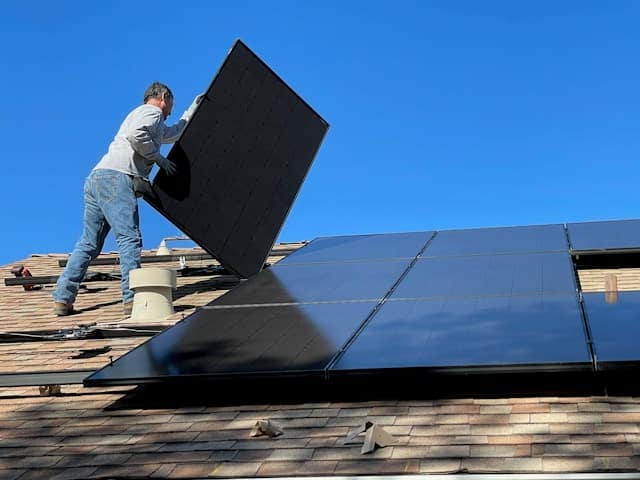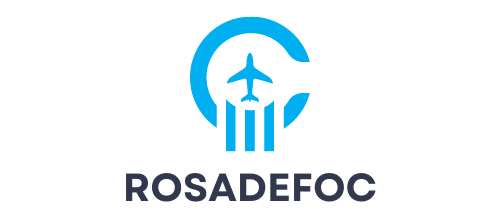How Is AI Being Used to Enhance the Effectiveness of Solar Panel Installations?

The renewable energy industry is currently experiencing a significant transformation. The shift from traditional energy sources to renewable alternatives, such as solar power, is accelerating at an unprecedented rate. Yet, this transition isn’t just about swapping coal for sunshine. It’s also about using advanced technology to optimize the performance of solar systems. One such technology, Artificial Intelligence (AI), is playing a pivotal role in enhancing the efficiency of solar energy systems.
The Evolution of Solar Energy Systems
Solar energy has long been hailed as the future of renewable power. The sun’s rays provide abundant, free, and clean energy. The challenge lies in harnessing and converting this energy into usable electricity effectively. This is where solar panels come into play. Over the years, the solar panel industry has made significant strides in improving the design and efficiency of these panels.
Have you seen this : Can AI-Powered Genome Sequencing Offer New Insights into Rare Genetic Disorders?
However, the sheer volume of data generated by solar power systems presents another challenge. It is impossible for humans alone to process and analyze this data effectively. This is where AI steps in, using machine learning algorithms to analyze the data and provide actionable insights.
Role of AI in Solar Energy Efficiency
Artificial Intelligence is increasingly being used in the solar industry to optimize the performance of solar panels. Machine learning algorithms can analyze vast amounts of data, identify patterns, and provide valuable insights. This can lead to the prediction and prevention of panel failures, optimizing the angle and positioning of panels for maximum sunlight exposure, and predicting energy output based on weather conditions.
Also read : Exploring top evernex refurbished it solutions for your needs
Moreover, AI can also aid in the maintenance of solar panels. Predictive analytics powered by AI can anticipate when a panel will need maintenance or replacement, which significantly reduces downtime and improves overall system performance.
AI in Solar Panel Installation
One critical area where AI is making a significant impact is in the installation of solar panels. AI tools can analyze geographical and meteorological data to determine the optimal location for the installation of solar panels. This ensures maximum sunlight exposure and, consequently, highest possible energy output.
Beyond location, AI can also determine the optimal angle and orientation for each panel. This takes into account not just the sun’s current position, but its trajectory throughout the day and across different seasons. Such precision in installation leads to significantly improved efficiency.
The Future of AI in Solar Power Systems
The potential of AI in the solar industry extends far beyond panel installation and maintenance. As AI technology evolves, it will continue to unlock new opportunities for optimizing the performance of solar power systems. For instance, AI could be used to control and manage the energy generated by solar panels effectively.
By predicting energy demand and supply, AI could ensure that the power generated by solar panels is distributed and used efficiently. Moreover, AI could even be used to automate the entire solar power system, from panel installation and maintenance, to energy generation and distribution.
While we are already witnessing the integration of AI in solar energy systems, we have only scratched the surface of what is possible. As AI technology continues to evolve and become more sophisticated, its applications in the solar power industry will expand and deepen. This will undoubtedly lead to a future where solar power systems are more efficient, smarter, and more adaptable than ever before.
Conclusion
The combination of AI and solar power is proving to be a game changer in the renewable energy industry. AI is not only helping to optimize the performance of solar panels but also enhancing the entire process of solar energy generation and distribution. This powerful synergy holds immense potential for the future of renewable energy. As technology continues to evolve, we can look forward to a future where renewable energy is not just an alternative, but the primary source of power.
Although there is still a long way to go, the progress made so far is impressive. The integration of AI in solar energy systems is an exciting development that promises to redefine the future of renewable energy. It is a testament to the incredible power of technology and its potential to drive positive change in the world.
In essence, AI is rapidly becoming the heartbeat of the solar power industry, providing intelligence, efficiency, and adaptability to an already promising source of renewable energy. It’s a bright future for solar power, and AI is leading the way.
Just remember, as you bask in the warm sunlight, there’s more than meets the eye. Behind the simple beauty of sunlight lies a complex and intelligent system powered by AI, working tirelessly to harness that sunlight and convert it into clean, efficient, and reliable power. The future of renewable energy is here, and it’s powered by AI.
AI-Driven Predictive Maintenance in Solar Energy Systems
Predictive maintenance is an integral part of any energy system. Traditional methods typically involve periodic inspections and scheduled maintenance. However, with the advancements in artificial intelligence and machine learning, predictive maintenance is becoming more accurate and efficient. This is particularly significant in the solar energy sector, where the performance of solar panels can be negatively affected by various factors such as dust, shadow, temperature, and degradation.
AI-driven predictive maintenance works by utilizing machine learning algorithms to analyze large sets of data from solar panels. This data could include information about energy production, temperature, weather conditions and many more. The algorithms are capable of identifying patterns and trends in the data, predicting potential failures before they happen.
By identifying issues early, it allows for timely maintenance, reducing the downtime of solar panels and increasing their lifespan. This leads to improved energy efficiency, saving costs in the long term.
Moreover, AI can also generate real-time alerts in the event of sudden performance drops, enabling immediate action. This not only ensures maximum energy production, but also extends the operational life of the panels.
AI can also assist in monitoring energy storage systems, such as batteries. It can predict their degradation, optimize their usage, and schedule maintenance, improving the overall efficiency of the energy system.
AI and Energy Consumption Optimization
AI is also making strides in the management and distribution of solar power. With the incorporation of AI, energy consumption can now be optimized more effectively. AI systems can analyze data from various sources including weather forecasts, historical energy usage data, and real-time energy consumption.
By predicting energy demand and supply, AI helps ensure that the power generated by the solar panels is used efficiently. This is particularly useful in grid-connected solar systems, where excess power can be sold back to the grid, or in off-grid systems, where optimal usage of stored power is critical.
AI can also automate the load balancing process. It does this by constantly monitoring energy production and consumption, and redistributing power as necessary. This reduces the strain on the energy storage systems and improves their lifespan.
Furthermore, AI can help with demand response, a method of controlling energy consumption in response to supply conditions. For instance, during peak sunlight hours when there is ample power being generated, AI can automate the usage of high-energy appliances. Conversely, it can limit energy usage during low sunlight conditions.
Conclusion
The integration of artificial intelligence within the solar energy industry has ushered in an era of unprecedented optimization and efficiency. From enhancing the performance of individual solar panels to streamlining energy production, consumption and distribution, AI is revolutionizing solar power.
With the predictive maintenance capabilities of AI, solar panels can now operate at their peak efficiency for longer periods, reducing costs and improving energy output. On the other hand, AI’s ability to optimize energy consumption ensures that the power generated is used effectively, maximizing the benefits of solar power.
The future of the renewable energy industry is promising, with AI at the forefront of driving this progress. As we continue to innovate and refine AI technologies, it’s clear that the synergies between AI and solar power will continue to grow and evolve.
So, as we look up to the clear, sunny skies, let’s also look forward to the innovative advancements that AI brings to the solar industry. And remember, there’s more to your solar panels than just harnessing the sun’s energy. They’re part of an intelligent, efficient, and evolving system powered by AI, turning sunlight into the energy that powers our world. The future of solar energy is not just bright – it’s intelligent.
